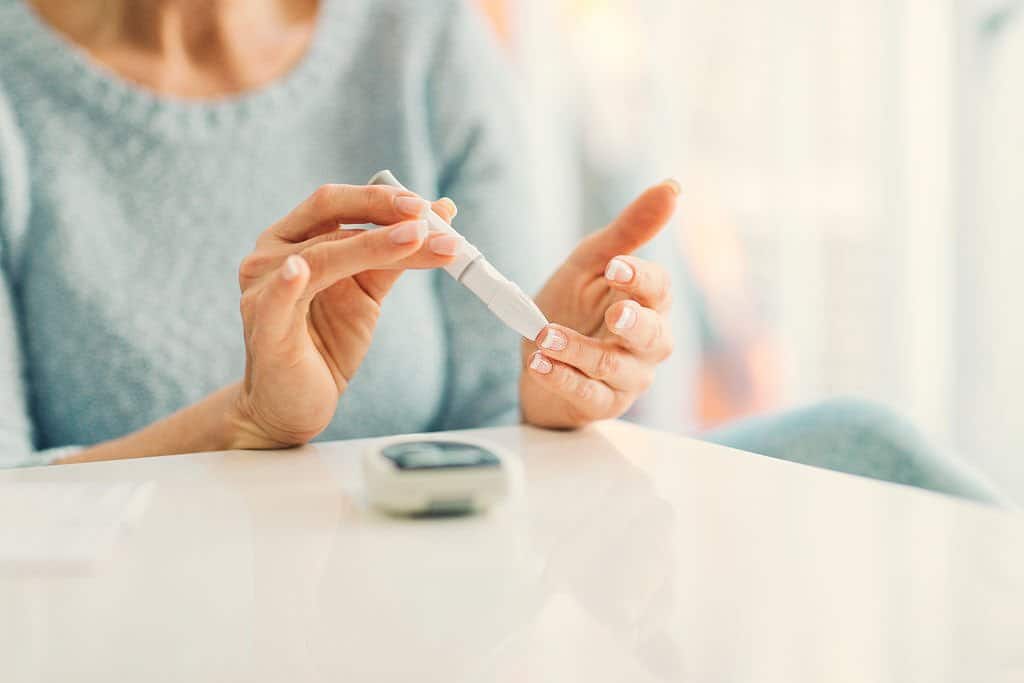
It doesn’t matter whether you prefer it black, with cream and sugar, or with a flavor shot; there’s no denying that it’s a morning energy boost for many people. And while you may think that all coffee does is give you a quick caffeine fix, there are some possible health benefits to drinking coffee.
Studies show that drinking coffee has many health benefits. So let’s have a quick eye on the types of coffee:
Black coffee:

Few things are as satisfying as a cup of rich, black coffee. The bold flavor of roasted coffee beans is refreshing, and the caffeine provides a much-needed energy boost. For many of you, coffee is a daily necessity. However, black coffee can also be enjoyed at any time of day. Whether you’re in need of an afternoon pick-me-up or a late-night study session, a cup of black coffee will give you the energy you need to power through. And for those who are trying to cut back on their sugar intake, black coffee is a great way to enjoy without all the calories.
Decaffeinated coffee:
Decaffeinated coffee is coffee that has had most of the caffeine removed. Caffeine is present in coffee beans, is a natural stimulant. For many people, caffeine provides a welcome pick-me-up, but others find it can cause jitters and insomnia. Decaf coffee is an attractive option for those wanting to cut down on their caffeine intake. The decaffeination process uses water or chemicals to remove the caffeine from the beans. After the beans are decaffeinated, they are roasted like regular coffee beans. Decaf coffee generally contains about 2-12mg of caffeine per cup, compared to 95-200mg in regular coffee. While decaf coffee still contains some caffeine, it should be safe for most people to drink.
Flavored Coffee:
Flavored coffee is flavored with syrups or spices. There are many different flavors to choose from, including vanilla, hazelnut, mocha, and pumpkin spice. Flavored coffee is a good option to add variety to your morning routine. If you’re getting bored of black coffee, try adding flavored syrup to your cup. It will add some sweetness and flavor to your coffee without all the calories.
Brewed Coffee:
Hot water is poured over coffee beans and allowed the mixture to steep for several minutes. The resulting beverage is rich and full-flavored, with a complex aroma that can vary depending on the type of bean used. It is an art to brew coffee, and there are many different ways to do it. Like the French press, some methods require special equipment, while others, like drip brewing, can be done with nothing more than a filter and a pot of boiling water. No matter what method you use, the key to making a great cup of coffee is to start with fresh, quality beans. Once you have your beans, experiment with different brewing techniques until you find one that suits your taste.
Coffee drinking benefits:
Improves cognitive function
For many of us, coffee is essential for our daily routine. We rely on it to help us wake up in the morning and stay alert throughout the day. But coffee isn’t just a helpful pick-me-up; it may also be good for our long-term cognitive health.
Research suggests that coffee may help to protect against age-related mental decline, including Alzheimer’s disease. One study found that older adults who drank three to five cups of coffee per day were a 65% reduced risk of developing Alzheimer’s than those who didn’t drink coffee.
It is found that other compounds in coffee contribute to these effects.
Reduces risk of gallstone diseases

Coffee lovers have both good news and bad news when it comes to the impact of coffee drinking on gallstone disease. A recent study shows that an adequate amount of coffee intake can lower the risk of symptomatic gallstone disease by up to 23%.
If you are currently experiencing gallstones, you have to avoid coffee consumption due to the stimulating effect on the gallbladder.
However, even if you are currently dealing with gallstones, there is some evidence that coffee intake may help to improve symptoms.
Decreases cancer risk
Though often demonized, coffee is quite healthy. It contains dozens of compounds that contribute to our well-being, and recent research has shown that two of these compounds can stop the growth of cancer cells. Kahweol and Cafestol, which are found in coffee beans, prevented the growth of prostate cancer cells in a laboratory study.
It is just one piece of evidence in a growing body of research that coffee drinks consumption may lower the adverse clinical outcomes of certain cancers. Studies have also found that coffee drinkers have a lower risk of liver, prostate, breast, colorectal, and endometrial cancer. So next time you have a coffee, rest assured that you’re doing your body a favor.
Heals damaged cells
One of the many benefits of coffee is; it is rich in antioxidants. These important nutrients help repair damaged cells and genetic material.
Coffee is a good source of polyphenols, an antioxidant, in our diet. It means that drinking just one cup of coffee per day can significantly impact your health.
In addition to preventing cell damage, antioxidants also help reduce inflammation and fight disease. Therefore, incorporating coffee into your daily routine is a great way to boost your health and protect your body against disease.
Lowers risk for Parkinson’s disease
It’s no secret that coffee has a host of health benefits. But did you know that one of those benefits may be protecting your brain from neurodegenerative diseases?
Research suggests that coffee drinkers have a lower risk of developing Parkinson’s disease, the second most common neurodegenerative disease after Alzheimer’s. Although the exact mechanism is unknown, it is thought that the antioxidants and other compounds in coffee may help to protect nerve cells from damage.
So if you’re looking for another reason to enjoy your morning cup of joy, know that it may be doing more than just giving you a jolt of energy—it may also be helping to keep your mind sharp for years to come.
Protects against diabetes

Type 2 diabetes is a serious medical condition that affects millions of people in the United States. The condition is characterized by high sugar levels in the blood and can lead to complications such as heart disease, stroke, and kidney failure.
While the exact cause of type 2 diabetes is unknown, several risk factors increase the likelihood of developing the condition. These include being overweight, having a sedentary lifestyle, and being 45 years of age or older.
Interestingly, recent research has suggested that coffee consumption may help to reduce the risk of developing type 2 diabetes. Studies have found that drinking 3–4 cups of coffee a day can decrease the likelihood of developing the condition.
It is believed to be because coffee contains compounds that help to regulate blood sugar levels. So if you’re trying to reduce your risk of developing diabetes, adding coffee to your diet is a great way.

Improves bowel regularity
Coffee isn’t just a wake-up call for their brain; it’s also a wake-up call for their digestive system. Coffee is well-known for its laxative effect. Almost a third of coffee drinkers claim to need to go to the toilet within 20 minutes after drinking.
While this side effect is not desirable for everyone, coffee might be a healthy beverage of choice to get things moving for those who struggle to have a regular bowel movement. The active ingredient in coffee that stimulates bowel activity is caffeine.
Caffeine binds to receptors in the intestine and acts as a natural laxative by increasing muscle contractions. If you have bowel problems and looking for a way to improve your bowel regularity, coffee may be the answer.
Helps maintain weight loss

If you are trying hard to lose weight, you might want to consider making coffee part of your morning routine. According to one research, individuals who drink coffee are 18% more likely to keep the weight off over time when compared with people who do not drink coffee.
The weight loss effects of coffee might be due to caffeine’s role as an appetite suppressant and its effect on metabolic activity. Don’t load up your coffee with sweeteners to enjoy the benefits of your morning caffeine fix without sabotaging your weight loss goals.
Protects liver health
Coffee is one of the most popular beverages globally, and it turns out that it may also offer some health benefits. According to major research that included 500,000 participants, three to four cups daily reduced the risk of all types of chronic liver disease.
It includes cirrhosis, fatty liver disease, and hepatocellular carcinoma, the most common type of liver cancer. The protective effect was seen regardless of other factors such as smoking, alcohol consumption, and obesity.
More research is required to know the exact mechanism at play; these findings suggest that coffee may be a helpful tool in preventing chronic liver disease.
Lowers risk of depression

We all know that feeling when we finally get our hands on that first cup of coffee in the morning. The aromatic steam rises to greet us, and we take that first sip with a sense of satisfaction. It’s no wonder that coffee has become such a staple in so many people’s lives – it just makes us feel good.
And now, it turns out that this feeling may be more than just a temporary pick-me-up. Scientists have found that people who drink four or more cups of coffee a day have a significantly lower risk of developing depression.
So what is it about coffee that makes it so effective at boosting our mood? Researchers believe that it has to do with the way coffee affects our brains. Coffee contains compounds that help increase levels of serotonin, which is known to play a role in mood regulation.
Adding coffee to your diet is a great way to reduce the risks of depression.
Improves microbiome diversity
A recent study found that The average coffee drinker has a more diversified gut bacteria. One possible explanation is the soluble fiber and prebiotic properties of coffee that feed the beneficial gut bugs.
The study’s authors believe that this finding could have important implications for gut health, as a more diverse microbiome is associated with better overall health. In addition, the findings suggest that coffee may be a more potent probiotic than previously thought.
Further studies are needed to confirm these findings, but the results of this study provide intriguing new insights into the potential health benefits of coffee.
Decreases stroke risk
Drinking coffee may help reduce your risk of stroke. This finding comes from a large study that looked at the drinking habits of over 83,000 women. The researchers found that women who drank two or more cups of coffee a day were 25% less likely to have a stroke than those who didn’t drink coffee.
While the underlying mechanism isn’t clear, the researchers believe that coffee’s antioxidant and anti-inflammatory properties may be responsible for its protective effect.
So if you’re looking for an easy way to reduce your risk of stroke, adding moderate coffee consumption to your diet is a good place to start. Just keep it black or with minimal milk and sugar – any additional calories could offset the benefits.
Increases physical activity levels
Another benefit of coffee? It may help you get moving. A study published in the journal PLOS One found that caffeine increased physical activity levels in a group of volunteers.
The researchers believe that caffeine consumption may help stimulate the nervous system, leading to a more vigorous response when it comes to physical activity.
Decreases inflammation markers
In addition to its other health benefits, coffee may also help decrease inflammation markers in the body. Research published in the journal Molecular Nutrition & Food Research found that caffeine intake was associated with decreased levels of inflammatory markers. This is likely due to the anti-inflammatory properties of coffee’s polyphenols.
So if you’re looking for a way to reduce inflammation in your body, adding coffee to your diet may be a good option. Just avoid adding too much sugar or cream, as these can offset the benefits.
How much is coffee intake safe to drink each day?
Coffee is safe to drink in moderation. The Mayo Clinic recommends limiting coffee consumption to 400 milligrams per day, or about four cups.
- High coffee consumption can cause increased heart rate and blood pressure and insomnia, anxiety, and restlessness.
- Too much caffeine can lead to headaches, muscle tremors, and irregular heartbeat.
- Consuming caffeine in high amounts is addictive and can be habit-forming.
- If you consume too much-caffeinated coffee, it is best to stop gradually to avoid withdrawal symptoms such as headaches and irritability.
While moderate coffee consumption is generally safe, it is important to be aware of the potential risks associated with caffeine. Those who are pregnant, breastfeeding, or have heart problems should speak to their doctor before caffeine consumption.
It is important to note that coffee is not the only source of caffeine. Tea, chocolate, and energy drinks contain caffeine, so it is important to factor them into your daily intake by limiting your intake and being mindful of the sources.
Conclusion:
Coffee is more than just a way to wake up in the morning. There are some health benefits to drinking coffee regularly. Coffee is a good source of antioxidants, which may help to protect your cells from damage. Caffeine is also present, which is proven to increase mental alertness and physical performance. In addition, coffee has been linked with a lower risk of type 2 diabetes and Alzheimer’s disease. So next time you drink coffee, remember that it’s not just a delicious pick-me-up – it’s also good for you!
FAQs:
What are the health benefits and risks associated with coffee?
Coffee does have health outcomes; it also has some potential risks if coffee consumption is high. Consuming coffee in an Adequate amount reduces the risks of cardiovascular disease( heart failure), chronic liver disease, chronic inflammation, Parkinson’s disease, and mental health.
Too much caffeine intake can cause increased heart rate and blood pressure and insomnia, anxiety, and restlessness. People with heart conditions, pregnant women, and breastfeeding mothers should speak to their doctor before drinking coffee.
What are the health benefits of coffee beans?
The health benefits of coffee beans include decreased risk of stroke, increased physical activity levels, and decreased levels of inflammatory markers. Coffee beans also have anti-inflammatory properties and may help decrease the risk of certain diseases.
I drink coffee every day. Is that going to be a health problem?
No, coffee is safe to drink in moderation. The Mayo Clinic recommends limiting coffee intake to 400 milligrams per day, or about four cups.
Do you think two cups of coffee a day are too much caffeine?
No, two cups of coffee are not too much caffeine. But, it is important to be aware of caffeine’s potential risks and limit your intake if you are pregnant, breastfeeding, or have heart problems.
What are other caffeinated drinks?
Chocolate, Tea, and energy drinks also contain caffeine. It is important to factor them into your daily intake as well.
More great articles that may be of interest to you 🙂
